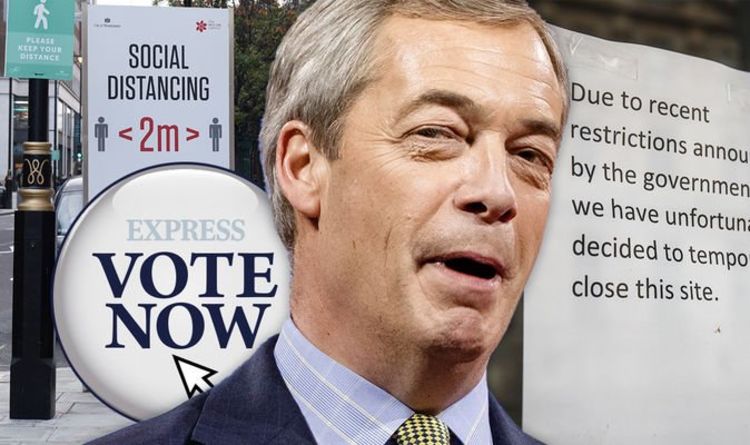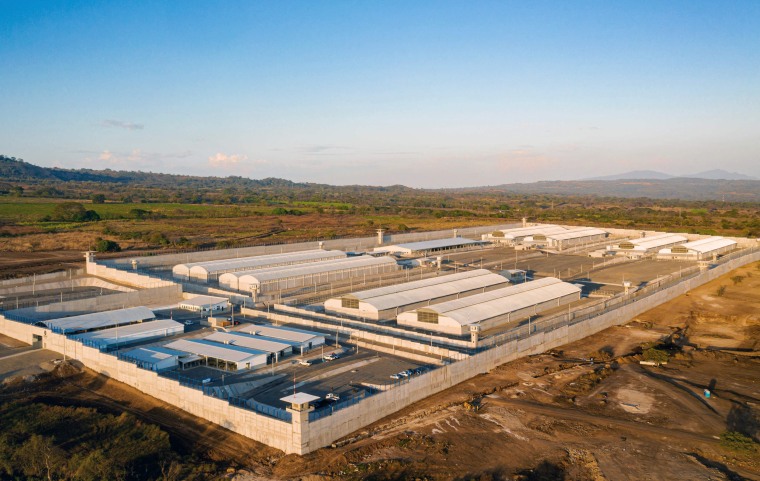Nigel Farage's Reform UK: More Than Just Complaints?

Table of Contents
Reform UK's Core Policies and Platform
Reform UK's policies extend beyond the simple "leave" rhetoric of the Brexit debate. While anti-EU sentiment remains a core tenet, the party articulates specific proposals impacting various facets of British life. Their platform covers economic policy, immigration, environmental issues, and social welfare, offering a comprehensive – albeit controversial – vision for the UK.
-
Brexit and EU Relations: Reform UK advocates for a complete severing of ties with the EU, pushing for independent trade deals and a complete rejection of EU regulations. This goes beyond simply leaving the EU; it's about creating a completely independent economic and political future for the UK, free from what they perceive as unnecessary bureaucracy. Specific policy proposals include renegotiating existing trade deals and establishing new ones globally.
-
Economic Policy: Reform UK champions lower taxes and reduced government spending. They advocate for deregulation to stimulate business growth and attract foreign investment. Specific examples include proposals for significant corporation tax cuts and a reduction in income tax for higher earners. These policies are presented as a means to boost economic growth and create jobs, contrasting sharply with the more interventionist approaches of other parties.
-
Immigration Policy: Reform UK adopts a stricter stance on immigration, calling for tighter border controls and a points-based system prioritizing skilled workers. They argue this approach would protect the UK's national interest and maintain social cohesion. The party's proposals are often described as prioritizing skilled migrants over refugees and asylum seekers.
-
Environmental Policy: Reform UK's approach to environmental issues differs significantly from mainstream parties. While acknowledging the existence of climate change, they prioritize economic growth over drastic emissions reduction targets. They often criticize the financial costs associated with green initiatives. Their focus is on technological solutions, promoting innovation rather than stringent regulations.
-
Social Policy: Reform UK's social policies often emphasize individual responsibility and a reduced role for the state. They advocate for reforms to the welfare system, aiming for greater efficiency and reduced dependency. Specific areas of focus include education reform and healthcare privatization.
Reform UK's Electoral Strategy and Performance
Reform UK's electoral strategy focuses on targeting specific demographics disillusioned with the mainstream political parties. Their campaigning techniques often leverage social media and direct engagement, bypassing traditional media outlets.
-
Election Results: While Reform UK has yet to achieve widespread electoral success in general elections, their performance in local elections and by-elections provides some insight into their support base. Their vote share has fluctuated, indicating a still-developing electoral footprint. Analyzing these results reveals patterns in specific regions and demographics where their message resonates most strongly.
-
Electoral Strategy: The party’s strategy involves focusing on key issues that resonate with voters dissatisfied with the Conservative and Labour parties. This often includes focusing on Brexit-related issues, concerns about immigration, and economic anxieties.
-
Factors Contributing to Success/Failure: Several factors affect Reform UK's electoral performance. These include media coverage, the effectiveness of their campaigning, and the political climate at the time of the election. Understanding these factors is crucial for predicting their future electoral prospects.
-
Comparison with Other Smaller Parties: Comparing Reform UK’s performance to other smaller parties in the UK highlights its unique strengths and weaknesses. Its ability to mobilize support and garner media attention sets it apart, but its lack of consistent electoral breakthroughs underscores the challenges faced by smaller political parties in the UK system.
The Influence and Impact of Reform UK
Despite its limited electoral success, Reform UK exerts a noticeable influence on the UK political landscape.
-
Influence on Political Agenda: Reform UK has successfully placed certain issues – notably Brexit and immigration – firmly on the political agenda, forcing other parties to address these concerns. This is a significant achievement for a relatively new party.
-
Media Coverage and Public Perception: Reform UK consistently receives significant media attention, often sparking debates and influencing public opinion. Analyzing media coverage reveals how their message is framed and the impact it has on public perception.
-
Role as a Pressure Group: Even without holding many elected offices, Reform UK acts as a powerful pressure group, influencing government policy through public pressure and targeted campaigning.
-
Relationship with Other Political Actors: Reform UK's relationship with other political actors, particularly the Conservative party, is complex and often characterized by both cooperation and conflict. Understanding this dynamic is crucial to understanding Reform UK's influence.
-
Future Trajectory and Long-Term Impact: The future trajectory of Reform UK is uncertain. However, its continued ability to influence the political conversation, even without significant electoral success, suggests a lasting impact on the UK political system.
Conclusion
This article has explored the complexities of Reform UK, moving beyond simplistic characterizations to examine its policies, electoral strategies, and influence on the UK political landscape. While often labeled as a vehicle for anti-EU sentiment, Reform UK demonstrates a broader agenda with potential implications for various policy areas. Understanding Nigel Farage's Reform UK is crucial for anyone seeking to understand the evolving dynamics of British politics. Continue your research into Reform UK's impact and consider the implications of its growing influence. What are your thoughts on the future of Reform UK? Share your perspective in the comments below!

Featured Posts
-
 Returning Tonight High Potential Season 2 Information And Episode Count
May 09, 2025
Returning Tonight High Potential Season 2 Information And Episode Count
May 09, 2025 -
 Jeanine Pirro And Due Process El Salvador Prison Transfers Under Scrutiny
May 09, 2025
Jeanine Pirro And Due Process El Salvador Prison Transfers Under Scrutiny
May 09, 2025 -
 Watch Pam Bondis Remarks On Eliminating American Citizens Spark Outrage
May 09, 2025
Watch Pam Bondis Remarks On Eliminating American Citizens Spark Outrage
May 09, 2025 -
 Elon Musk Net Worth Dips Below 300 Billion Analysis Of Recent Market Volatility
May 09, 2025
Elon Musk Net Worth Dips Below 300 Billion Analysis Of Recent Market Volatility
May 09, 2025 -
 Madhyamik Pariksha Result 2025 Check Merit List And District Wise Rankings
May 09, 2025
Madhyamik Pariksha Result 2025 Check Merit List And District Wise Rankings
May 09, 2025
